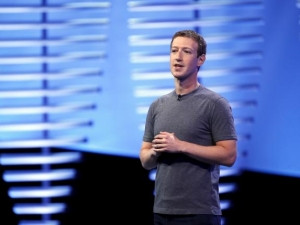
Facebook will this week launch a satellite to spread Internet access to the most rural parts of Sub-Saharan Africa, says CEO Mark Zuckerberg.
Zuckerberg's plans are no surprise, as the boss of the world's largest social media network has long been an advocate of affordable widespread Internet access through initiatives like Facebook's Free Basics.
"The Internet is one of the most fundamental parts of infrastructures that I think needs to exist," he said.
Zuckerberg made the comments during an hour-long Q&A video session with entrepreneurs in Lagos, Nigeria this week, when he revealed Facebook's three-point plan to provide connectivity.
The Facebook boss is visiting the West African nation as part of his first trip to Sub-Saharan Africa. On this trip, Zuckerberg has been meeting with developers and entrepreneurs, and learning about the start-up ecosystem in Nigeria.
In order to connect everyone in the world, making sure everyone has access to the Internet is a really important thing, according to Zuckerberg. "Across the world, more than half of people don't have access to the Internet and that's true here in Nigeria too."
He said Facebook's three-part Internet access plan involves building infrastructure, making sure the network is affordable, and ensuring people understand the importance of the Internet.
Zuckerberg explained: "The first part is building infrastructure, making it so that no matter where you are in the world, you can get access to a signal. That is stuff like where we're launching a satellite later this week to beam down connectivity. We've also built these solar-powered drones that are basically a cellphone tower in the sky that can go over really remote rural locations and beam down connectivity to make sure that network spreads to everyone."
He continued: "The second part of the plan is to make the network affordable. It's not much good having infrastructure if people can't afford to use it. There are two parts to this, and that is building cheaper infrastructure and the second is on app developers to come up with apps that use less data."
The third part of the plan is making sure people understand why the Internet might be valuable for them to use, he said. "We're working on programmes like Free Basics, which is now live in 22 countries across the continent, to make it so that people can get access to some basic Internet services for free."
Tech ecosystem
Zuckerberg noted Nigeria's vibrant developer and entrepreneurial ecosystem is the driving force behind his first visit to the region.
This week, Zuckerberg visited Yabacon Valley, Co-creation Hub Nigeria in Yaba where he participated in the summer of coding camp at the hub, and Andela.
Andela is a business that recruits the most talented technologists in Africa and shapes them into world-class developers through a four-year technical leadership programme.
Earlier this year, the Chan Zuckerberg Initiative invested in Andela after being impressed by the company's innovative model of learning and its drive to connect the global technology ecosystem with the most talented developers in Africa.
"The energy here is amazing and I think people need to see that," he said.
He explained: "Here in Lagos and across the continent things are changing. The economy is shifting from a resource-based economy to an entrepreneurial and knowledge-based economy. You guys are the ones leading that change."
Globally, there are over 1.65 billion monthly active Facebook users. Last June, Facebook said its active user population in Africa was 120 million, with many of those users coming from Africa's most populous nation.
In February 2016, the social network disclosed that 16 million people in Nigeria visited Facebook every month, with almost 100% accessing it from mobile devices.
Share